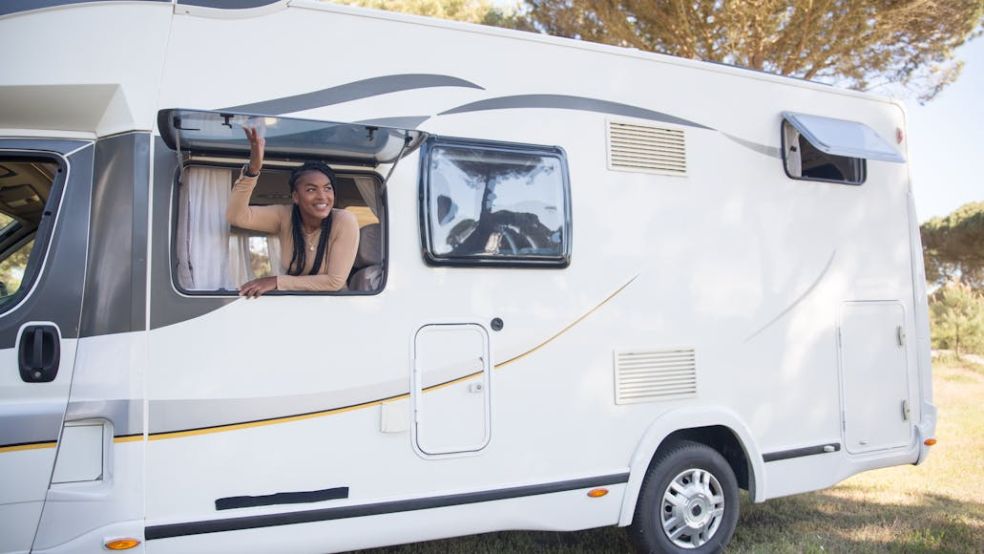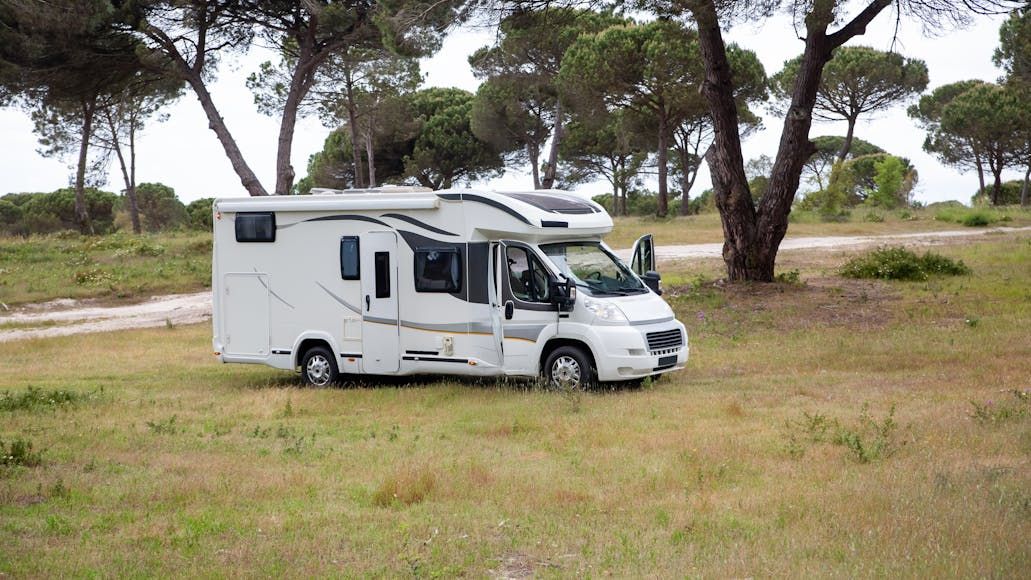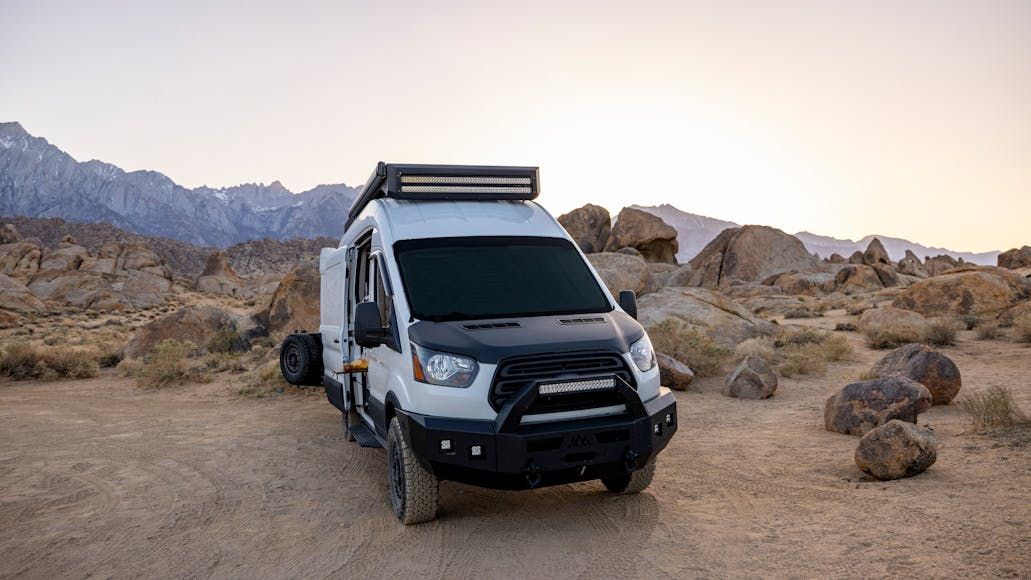
From Weekend Warriors to Full-Time Nomads: Why Motorhomes are Redefining UK Travel in 2025
It’s 2025, and something has shifted in how the UK travels. Gone are the days when holidays meant standing in security lines at Heathrow or booking hotels months in advance. A growing number of Britons are trading suitcase living for spontaneous, wheel-powered adventures.
Fuelled by the rise in domestic tourism, post-pandemic lifestyle changes, and a craving for flexibility, motorhome travel has surged across the UK. It's no longer a niche for retirees. From digital nomads to families and solo eco-travelers, the motorhome has become a symbol of freedom, adaptability, and modern exploration — and The Motorhome Trader is at the heart of this growing movement, connecting adventurers with the perfect vehicle to hit the open road.
What’s Driving the Rise of Motorhome Travel in the UK in 2025?
The surge in motorhome popularity isn’t random—it’s rooted in larger social and economic currents that have reshaped how people experience travel.
Remote work has blurred the lines between vacation and vocation. For many, a campervan parked near the Lake District now doubles as both a workspace and a retreat. On top of that, the rising cost of traditional holidays—flights, hotels, dining—has made self-contained travel far more appealing to cost-conscious travellers.
Social media is also playing its part. Platforms like Instagram and TikTok have glamorised vanlife, spotlighting the scenic routes, minimalist interiors, and dreamy cliffside coffees that come with mobile living. This cultural shift toward visual storytelling makes the motorhome lifestyle feel not just attainable, but desirable.
Eco-consciousness has contributed, too. As more people aim to reduce their carbon footprint, interest in low-impact domestic travel has soared. Add in the fact that motorhomes are now more pet-friendly, family-compatible, and tech-integrated than ever, and it’s easy to see why so many are making the switch.
Who Are the New Age Motorhome Travellers?

Today’s motorhome adventurers are wildly diverse. There’s the retired couple tracing the UK coastline at their own pace, ticking off heritage sites they never got around to visiting. Then there’s the young pair of digital marketers livestreaming from Snowdonia, managing campaigns by day and stargazing by night.
Families are also embracing road schooling—packing up the kids and curriculum, and letting the Highlands or Cornwall become their classrooms. Solo travellers seeking a lower-carbon lifestyle are outfitting compact vans with solar panels and composting toilets, living light and living free. And then there are the weekend warriors—9-to-5 professionals who grab their keys every Friday night, chasing waterfalls and forests until Monday calls them back.
This diversity reflects a deeper truth: motorhome travel is no longer about age or income—it’s about values, priorities, and the desire to rewrite the travel experience on your own terms.
What Makes Motorhome Travel So Appealing Today?
The appeal lies in autonomy. There’s a freedom in knowing you can pivot your plans at any moment, whether it’s chasing better weather, finding a quieter spot, or simply staying an extra night because the view is too good to leave.
Unlike traditional travel, where you’re bound by bookings and check-in times, a motorhome gives you full control. It becomes your accommodation, your kitchen, your mobile sanctuary. For pet owners, the ability to bring along furry companions without boarding them is a massive relief. For families, it means eliminating the chaos of airports and creating bonding experiences on the open road.
Cost-saving is another draw. Being able to cook your own meals and avoid hotel charges makes a huge difference, especially over longer trips. But above all, it’s the comfort of having everything you need—your bed, your gear, your rhythm—with you, wherever you go.
How Has Motorhome Technology Evolved in 2025?
Modern motorhomes have evolved far beyond their boxy predecessors. They're now equipped with technology that makes them smarter, greener, and more adaptable to the realities of full-time or long-term use.
Solar panels and lithium battery systems offer reliable off-grid living, allowing travellers to camp comfortably without hookups. Advanced energy monitoring systems help manage consumption, reducing waste and extending freedom. Mobile routers and 5G boosters make remote work viable from just about anywhere, even in rural corners of Scotland or Wales.
The interiors have seen a facelift too. Modular layouts with lightweight materials make even the smallest vans feel spacious. Composting toilets and low-flow plumbing systems cater to eco-conscious lifestyles. Everything is designed for mobility without sacrificing functionality—proving that smart travel can still be stylish.
Are Motorhomes a Good Investment for Frequent UK Travellers?
Buying a motorhome isn’t a small decision—but for frequent travellers, it may be one of the smartest lifestyle investments in 2025. While ownership comes with upfront costs, it can offer long-term value for those regularly on the road. For those not ready to commit fully, rentals provide a flexible and accessible way to experience the motorhome lifestyle without a major investment.
Renting allows for spontaneity and low commitment, while buying can lead to savings over time if you travel often. Plus, many owners choose to rent out their vehicles when not in use, turning their motorhome into a potential source of passive income.
Of course, ownership comes with ongoing costs. Fuel efficiency varies by size—smaller vans can hit 35 mpg, while larger rigs dip closer to 20. Insurance premiums depend on usage, with full-time policies costing more. Annual maintenance and MOT fees must also be factored in. Still, for those who use their van regularly, the math often works out in their favour.
What Types of Motorhomes Suit Different UK Lifestyles?

Your ideal motorhome depends on how you travel. Compact campervans work best for solo adventurers or couples craving weekend escapes—they’re nimble, efficient, and city-friendly. Coachbuilt motorhomes, with their classic over-cab design, are perfect for couples or small families who need more room without sacrificing drivability.
Those seeking luxury or full-time living gravitate toward A-Class motorhomes. These offer the most space and high-end features but require a heftier budget and a bit more driving confidence. Micro motorhomes are emerging as a favourite among budget-conscious city dwellers, offering simplicity without sacrificing core comforts. Meanwhile, converted vans remain a hit among creatives and DIY enthusiasts who value customisation over conformity.
Each option has trade-offs, but the market has never been more versatile—or more accommodating.
Where Can You Legally Camp in a Motorhome Across the UK?
Legal camping varies across regions. In Scotland, wild camping is widely permitted under access laws—though motorhome users are expected to follow "leave no trace" principles and avoid sensitive sites. In England and Wales, wild camping typically requires landowner permission, though there are grey areas in more remote locations.
Apps like Park4Night and Searchforsites are game-changers, helping drivers find legal, reviewed parking spots across the UK. Brit Stops connects travellers with pubs and farms that offer free overnight stays in exchange for patronage. Meanwhile, councils are starting to roll out new initiatives—designated motorhome zones, electric hookup points in rural lay-bys, and improved waste disposal infrastructure—to better support the influx of van travellers.
Conclusion
The motorhome boom isn’t a fad—it’s a reflection of changing priorities. In a fast-paced world, more people are seeking simplicity, control, and connection. Motorhomes offer all three, wrapped in a rolling package of comfort and discovery.
In 2025, UK travel is being rewritten by those willing to take the wheel—whether it’s for a weekend escape or a new way of life. So if you're craving something different this year, maybe it’s time to stop booking rooms and start building routes.
















